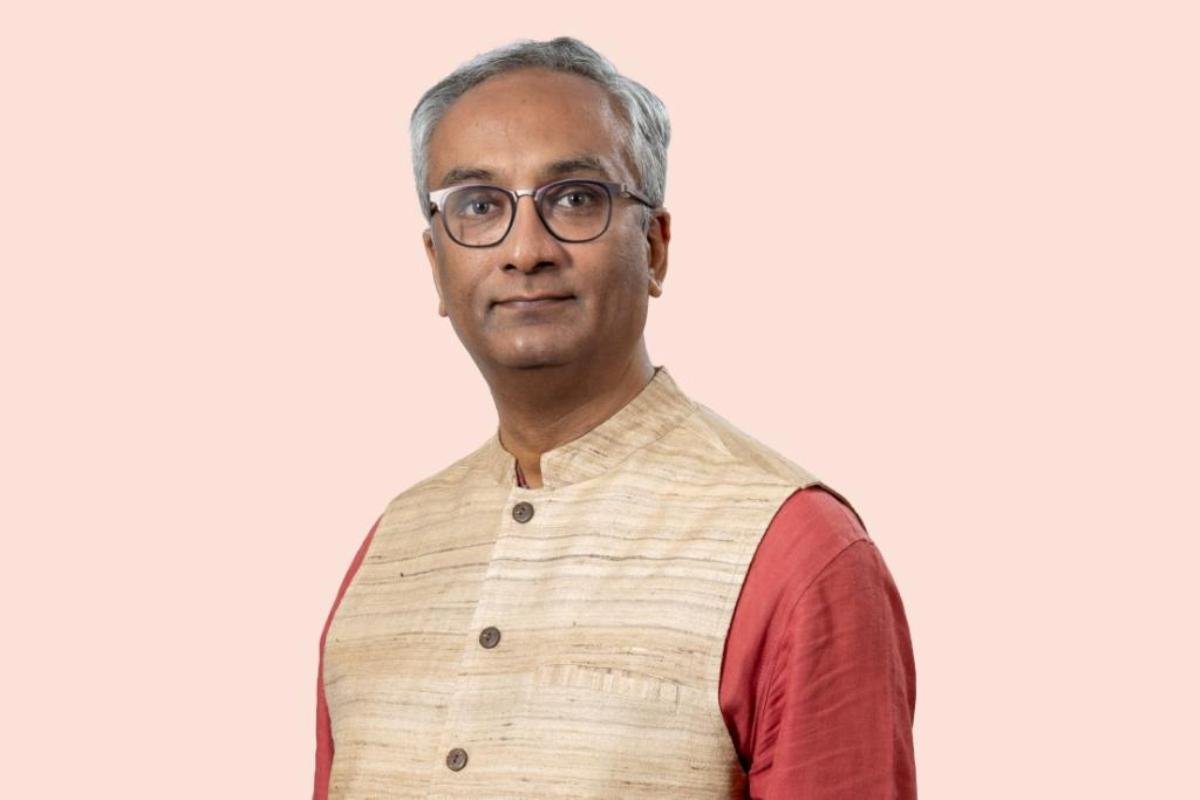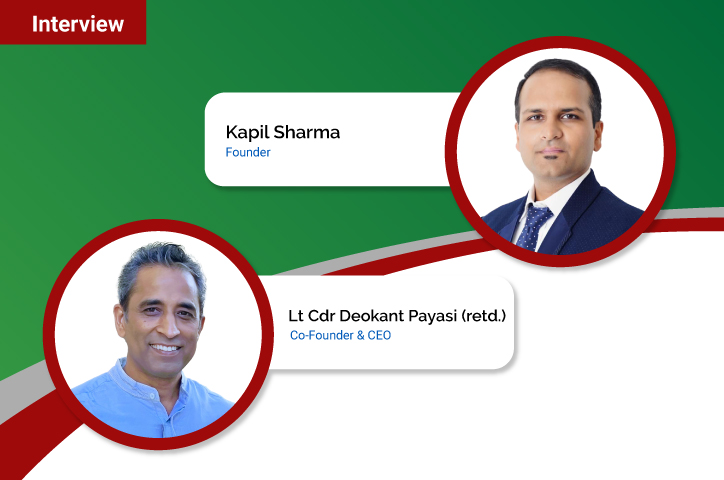Corporate Social Responsibility (CSR) has evolved into a powerful force for social change in India, reshaping the way businesses contribute to national development. With the country being the first to mandate CSR spending, companies are now playing an active role in addressing systemic challenges and fostering inclusive growth.
In this exclusive interview with TheCSRUniverse, Aditya Natraj, CEO of Piramal Foundation, shares his insights on how CSR laws have influenced corporate participation in the social sector. He discusses the importance of expanding CSR initiatives to underserved regions, ensuring equitable allocation of resources, and adopting data-driven approaches for sustainable impact.
He also highlights key challenges in the development sector, including the dominance of large NGOs and the need for stronger collaboration between corporates, government bodies, and local organizations. Additionally, he emphasizes the role of empathy, learning, and service-oriented leadership in maximizing the effectiveness of CSR efforts.
Scroll down to Read on to discover his perspectives on how CSR can drive long-term transformation and create a lasting legacy beyond financial contributions.
Q. How has the evolution of CSR laws in India influenced corporate participation in the social sector?
A. India’s pioneering move to mandate Corporate Social Responsibility (CSR) establishes the country as a global leader in reimagining the role of businesses in society. By requiring companies to allocate 2% of their profits to social initiatives, India has created a framework that integrates corporate success with the nation's development priorities.
This evolution has opened the door for what I call “compassionate capitalism”—a model where profits are balanced with purpose. This creates a deeper connection, as companies can see tangible outcomes from their contributions.
Beyond compliance, CSR is an opportunity to contribute meaningfully to India’s growth trajectory. With India maintaining a consistent growth rate of 6-7%, the CSR mandate offers a unique framework for companies to expedite development, which ultimately enhances their own sustainability and long-term success.
So, if you see the broader purpose of CSR laws in India are not just about redistribution of wealth. It serves as a proactive approach to addressing systemic challenges, fostering innovation, and empowering communities. This shift is more like a self-imposed guardrail that represents a fundamental change in the nature of capitalism, evolving from a purely profit-driven model to one that prioritizes purpose alongside profit, ensuring a more compassionate and inclusive system. Through these efforts, businesses are given the chance to leave a lasting legacy that extends beyond financial performance.
Q. What are the top priorities that CSR should focus on, in your opinion?
A. In my opinion, it’s time for CSR efforts to prioritize addressing systemic challenges and driving sustainable development through a strategic and collaborative approach. Currently, many CSR initiatives are localized and tend to benefit areas near factories or company operations. While this is important, there’s a growing need to expand these efforts to underserved and marginalized regions.
Take India's "New BIMARU" states—Chhattisgarh, Jharkhand, Odisha, Assam, and Bihar, as an example. These regions have been neglected for long, leading to stagnation in human development. With 200 mm citizens live in these opportunity deprived states. You will be surprised to know that there are some districts in these states, whose collective HDIs are lower than South Sudan or Ethiopia. These districts are home to traditionally excluded tribal populations. Some are inhospitable terrains and are often close to unstable neighbours, which has further compounded issues around land rights. Governments have been struggling with this and so have civil society actors.
This highlights why CSR initiatives need to be more equitable, and data driven in their design and implementation. It’s essential that CSR programs address the root causes of the social issues keeping a close eye on national priorities such as improving education, healthcare, and livelihoods, while also addressing critical challenges like climate resilience and gender equality.
To effectively achieve these transformative changes, a multi-stakeholder approach is essential. Engaging a diverse range of participants—philanthropists, corporate foundations, government bodies, NGOs, academic institutions, and local communities—creates a robust ecosystem for sustainable impact. By pooling resources, sharing expertise, and leveraging networks, these collaborators can prevent duplication, foster synergies, and enable holistic solutions tailored to community needs.
Q. How well is the development sector making use of CSR funds? What could they do better?
A. The Indian development sector has made notable progress in utilizing CSR funds to address critical social challenges, yet significant gaps remain. One of the key challenges is information asymmetry. Smaller, hyperlocal NGOs often struggle to access CSR funds due to lack of visibility, limited capacity to navigate corporate networks, and insufficient resources to meet compliance and reporting requirements. As a result, a few large and well-established NGOs and foundations dominate the CSR landscape, receiving a significant portion of available funds. Meanwhile many smaller organisations which are deeply immersed in underserved and remote communities, often go unnoticed despite their impactful work.
One way to bridge this gap is by foundations playing the role of “development midwives”. These foundations can support smaller NGOs by providing mentorship and offering guidance on compliance. This will increase accessibility to funding opportunities and ensure that more organizations working on the ground in underserved areas receive the support they need.
Another area where CSR efforts can align with national priorities, is through encouraging stronger Government collaboration especially in underserved areas like the new BIMARU states and Aspirational Districts, ensuring equitable resources allocation.
To ensure accountability we should bring the focus on outcome metrics (e.g., improved literacy rates) instead of just outputs (e.g., schools built) by adopting transparent evaluation frameworks.
Q. If there is one thing you would like to see change in the CSR world, what would it be?
A. Cultivating a mindset of service and continuous learning is crucial to address complex development challenges. To unlock the full potential of CSR we need to go beyond funding visible, short-term projects, and focus on developing a deeper understanding of community needs. By taking time to engage with local communities and analysing systemic challenges, we can adapt strategies that direct meaningful funding to address root causes effectively.
I have seen that a lot of efforts are duplicated leading to resource waste. By fostering specialization and collaboration among corporates, NGOs, and other stakeholders, we can leverage unique strengths— viz. corporations by providing resources, NGOs by offering grassroots insights, and governments contributing scale and reach. Strategic engagements and partnerships, can create a platform for sharing domain expertise, engaging in cross-learning, and co-designing solutions that are both holistic and sustainable, ensuring long-term impact of our investment.
Ultimately, the CSR world must prioritize fostering an ecosystem where empathy, collaboration, and innovation thrive. By embedding these principles, CSR can transition into a powerful force for creating equitable, inclusive, and transformative societal progress.
Q. How can CSR teams raise their game to meet our challenges?
A. At Piramal Foundation, we believe that true service, or Sewa Bhav, goes beyond giving. While giving often feeds the ego, Sewa Bhav is about humility and purpose – serving as an instrument of the divine to create meaningful impact. It is an opportunity to contribute with authenticity, guided by the belief that learning and serving are interconnected.
I believe by adopting this philosophy and a mindset of learning through service, we can truly understand complex problems and deliver value. This approach moves beyond transactional philanthropy and embraces a deeper purpose—prioritizing empathy, humility, and collaboration, where corporate professionals can bring their expertise while remaining open to learning from the communities they serve.
By embracing Sewa and learning as a culture, CSR teams can unlock their full potential to address the most pressing societal challenges, ensuring their work leaves a lasting legacy for both communities and themselves.















.jpg)



